
Interview with Hannelore Dachs, BDM member, NSDAP member, assistant to the regional party leader and widow of a fallen SS officer. Germania Club, Columbus, Ohio, 1985. Special thanks to E. R. for translation help.
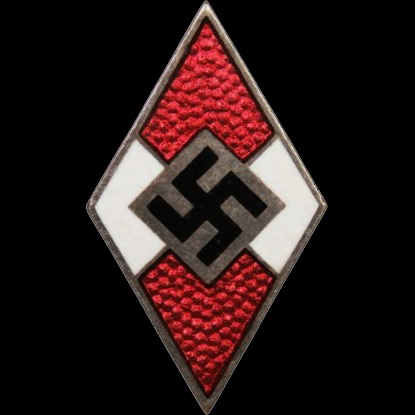
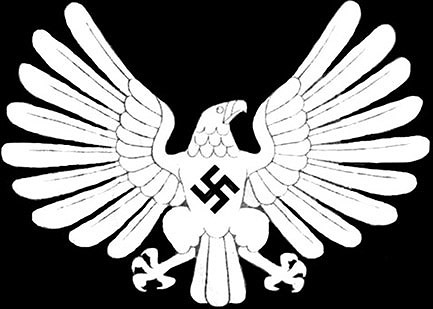

Interview with Hannelore Dachs, BDM member, NSDAP member, assistant to the regional party leader and widow of a fallen SS officer. Germania Club, Columbus, Ohio, 1985. Special thanks to E. R. for translation help.


Thanks for letting us speak with you, can I ask how you came to be involved in the BDM?
Hanne: Well first let me tell you where I come from. I was born in a small town called Annaberg, which was in Silesia. This town was between Breslau and Krakau. I was born in 1914 while my father was away fighting in the first war. He came home to us in 1919, right when the border wars started.
My town was a very beautiful town with deep religious meaning; we had icons that meant a lot to us. After the war, the Poles tried to take more of German land than what the treaty
[The 1919 Treaty of Versailles granted Silesia to Poland]
gave them. They were even aided by some who lived in our area, and who were anarchists.
My father was called away to fight yet again for Germany, and we had to flee the area and go to Breslau. We heard terrible stories of how bad the fighting was, the remnants of the German army formed Freikorps units to stop the invasions. This fighting went on well into the '20s on and off. [The most famous of these battles was the Battle of (the) Annaberg, which was the largest battle of the Silesian Uprisings. It took place between May 21–26, 1921.]
It wasn't until Hitler came that it stopped all together. My parents were big supporters of him and the movement. I worked on our farm in my early life, helping to milk cows, feed chickens and so on. We had issues with Poles sneaking across the border and stealing from the farmers.
I had something happen to me that was scary. I was young and taking feed to the cows when I noticed men running along a tree line. I went to see what was happening out of curiosity and when I crested the hill I was grabbed by one of them. They spoke Polish, which I understood little.
He threw me down and kicked me, then ran off. I saw they had cut a hole in the wire to steal a cow. I scared them off before the cows came over to them. We called the police but they found nothing of them. I heard them tell my father this happens a lot but there was not a lot they could do, due to treaties and laws.
This set my mind that something was very wrong in Germany, and developed an interest in politics. In 1929 I went to hear a speech by the local NSDAP with my father who appeared to love every word they spoke. He joined the party, and I signed up for the BDM [Bund Deutscher Mädel, or The League of German Girls]. The BDM was very young still and somewhat sparse; there was a group out of Breslau that oversaw Annaberg. I was 15 so I was one of the older girls.
So that is how I came to be a member of the BDM, it was voluntary, and was much like the Girl Scouts here. All nations back then had organizations for the youth to join. They were meant to help give youngsters something to do, a purpose in life. The BDM put the biggest emphasis on a purpose in this life, to be happy and successful.
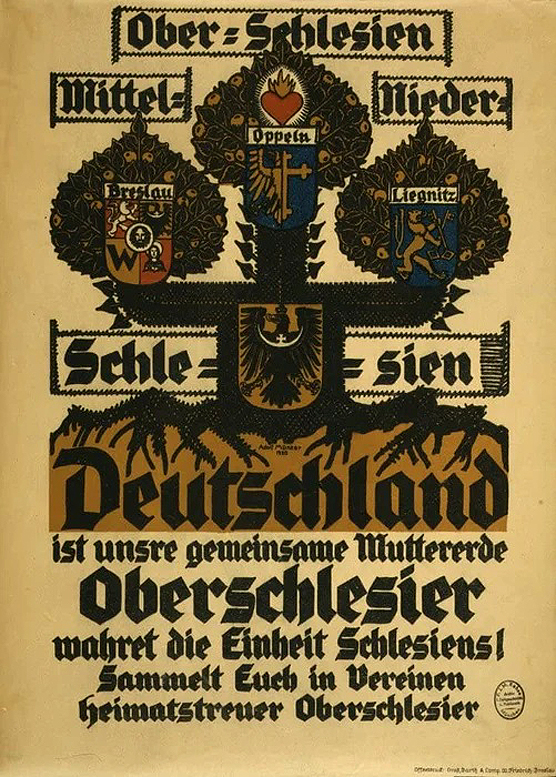
[Above: German art from the Silesian Uprisings:
'Ober=Schlesien
Mittel=Nieder
Schlesien
Deutschland
ist unsre gemeinsame Muttererde
Oberschlesier
wahret die Einheit Schle=siens!
Sammelt Euch in Vereinen
heimatstreuer Oberschlesier'
(Upper=Silesia
Middle=Lower
Silesia
Germany
is our common mother earth
Upper Silesians
preserve the unity of Silesia!
Gather in associations of Upper Silesians loyal to their homeland)]
What happened to you after your time in the BDM?
Hanne: Well, a girl could only stay in the BDM until 18, then you either moved to the Faith and Beauty group, got married, or went on to your career. For me it was moving on to a career. Being raised on a farm caused me to miss the city life, and our school only supported us in farm careers.
I always had a yearning to go to the city to live, just to experience it. I got that chance in 1933. I had joined the NSDAP and was offered a job working in the district office in Breslau. The pay was very good, and I had a place to stay which was free. Much to my parents' dismay I left for the city. The state paid for a helper to come to the farm to work in my place.
I really liked this work; I was an assistant to the party leader for our area. It was interesting to see information about our neighbors. I liked being nosy to see who were members and who were not. One school mate I remember went on to work for the Gauleiter for our region, it was a big position.
I stayed in this office until 1944, even when I became married to a man who was in the SS. His name was Walter and he was the soldier type, working in the SS recruitment office. I met him when he came to bring applications that needed party membership confirmations done.
We hit it off, and he asked me to a dance for the following weekend. The other girls in my office helped me pick out a dress and heels to wear. This was a big deal for me, my first real date. I remember being a bit intimidated seeing the handsome men in those black uniforms.
There were many other girls there as well, one wore a traditional dress from home, and I found out she lived a town over. This started my relationship with Walter and I became a war bride in 1939. He went to my father to ask his permission, and we married in December of 1939.
We rented a flat in Breslau with the goal of buying a home soon. The state made it very easy for married couples to get a home. It was cheap, and the loans were forgiven after so long or if you had a certain amount of children. The war kept Walter busy, and in 1943 he was called up to the front.
He had to leave to go to a special school for his field to get him ready for the front. I remember being very worried. The party had so many recourses for every walk of life. I was a member of the NS Women’s League
[Nationalsozialistische Frauenschaft, or National Socialist Women's League, the women's arm of the NSDAP]
which was primarily housewives. The SS even had support for wives as well. We met once a week to talk about life, the war, and gossip a bit.
He went to the front in the east and I saw him one last time in May of 1944. Later his regiment was caught up in the offensives of that summer and he was killed during one of these attacks. His commander wrote to me, as did many of his comrades. He was in a armored tank killer, and had just killed an enemy tank, when another surprised them and knocked them out.
He died right away the letter said, along with his crew. It was a hard time for me, that summer, but I did have such good support. Ladies from my former BDM group came, SS officers, party officials, even our Gauleiter came to visit. I was kept busy at work to get my mind off it.
We had to help process the many refugees who were fleeing the Russians by the fall. In the winter we had to evacuate as the Russians were close to us. I told my family to leave the farm but father refused as he had Russians and Poles working for him now. They were former prisoners who were released to the care of farmers to help work if they wanted. I never understood this.
They were paid and given a place to stay. He told me they would be his protection against the Russians. He said if they come then these men will vouch for him that he kept them safe. From what my Walter had told me about the Russians I was fearful, but father was a hard headed man.
He never left, neither did my mother and they were never seen again. No one knows what happened. All I could find out was when the Russians came so did partisans. They took many Germans away who were never seen again. No paper trail, nothing. My only comfort is I hope they remained together until the end.
Since you lived in the region that was a contested area, do you know if there were any Polish attacks on farms during the Third Reich?
Hanne: Oh yes, I can tell you that it is a known fact among the Germans who lived close by. There were always Poles who wanted this land as it was rich farmland and had minerals. As I told you with my experience, the Poles often crossed the border and stole from Germans.
There were even cases of attacks where women were raped and men killed. I will say this it was not a frequent occurrence, but it did happen. Let me tell you a little bit of why, and [redacted name of the female assistant to this interview] your mother know this as well, the Poles hated Germans. They were under German protection until 1918.
They resented Germans as we had more to show as testament to our abilities and creativity. They seemed to have juvenile minds that were always blaming someone for their problems. Hate was very powerful in them and there was bad blood after the border wars. Many Germans tried to get along with them, and be friendly, but their leaders pushed hate.
I heard people talk of Poles killing people of German decent well before the war started.
When German troops went in it got worse all over the western parts in the first days of the war. I volunteered to help refugees coming to Breslau, and they were shaken up. This started in early 1939 and lasted until Poland was beaten. I saw families arrive where the husband had been killed.
They seemed to avoid the women and children, but in some areas that did not matter. Our papers did not report much on these, I suppose to curb any revenge attacks. Many Poles came into Germany seeking asylum when war broke out. I have talked to Poles here who claim they never would have done these things, and that Germans just made them up.
I saw the faces of the women and children personally, and I can tell you they were not faking the fear in their eyes. I know that region too well, and there was so much jealously and hatred in some of the Poles that it is no surprise they committed acts like this.
I know today these attacks are lost to history, as the Allies want these hidden away like they never happened. I see in the movies they never mention this is why Hitler attacked Poland; it is always the story of living space.
It is very misunderstood, often on purpose, what Hitler was saying regarding this. In no way did the German version of Mein Kampf talk about using force to take the lands of the east. He was pointing out that the Germanic peoples hold an advantage in creativity and hard work over those from the east in most cases.
What he was meaning, from a German, and widely European point of view is that the people who are more industrious and hardworking will eventually come to possess greater areas, as the less productive migrate to the cities to live off the government. Therefore the stronger, more intelligent will find ways to possess more prime land so they can be more productive.
The east was the only area left in Europe where some people were still living in poverty with no means to rise up. That’s why the communists were so successful in convincing the unintelligent to join them. Nature would take care of moving in people who would heal the land and bring culture. When they claim the war was all planed in advance I know this is just not true.
The war happened because of old hatreds and because Hitler was trying to negotiate with the Poles to seek a return of the lost German lands. For his efforts some war-loving Poles started persecuting and attacking civilians of German decent. This was what really started the war. There were also some claims that the Polish army crossed the German border even before September 1st in order to set up attacks.
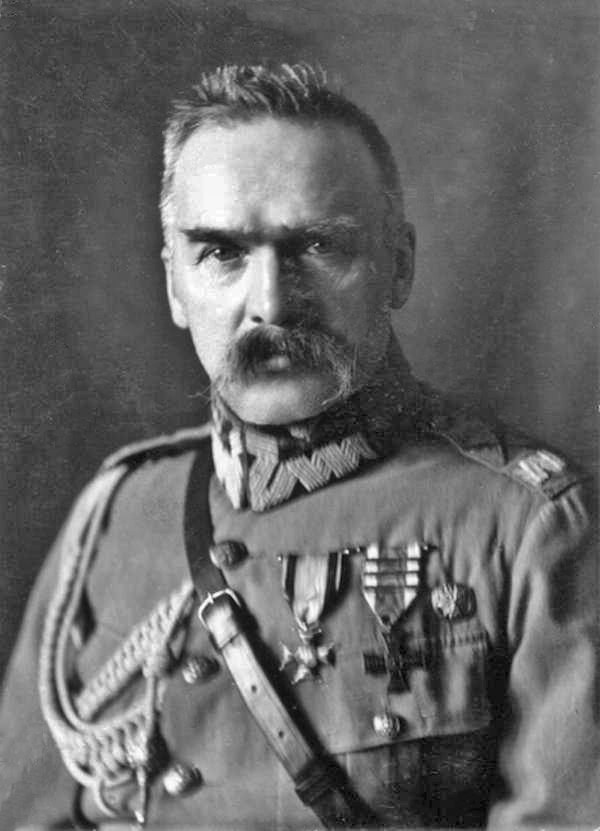
[Above: The eventual war between Germany and Poland probably never would have happened had not its greatest leader of all time, Józef Klemens Pilsudski, died in 1935. He is viewed as a founding father of the Second Polish Republic and was very friendly toward Adolf Hitler himself. In fact, Adolf Hitler ordered a state memorial in Berlin, which he attended. After Krakow was captured by German troops in 1939, Adolf Hitler ordered an honor guard to stand by Pilsudski's tomb.]
[Above: Adolf Hitler at the memorial service. We must always remember that the Polish people themselves were controlled by 'powerful interests' in Britain that wanted war with Germany at all costs. The Polish people were not the enemies of Germany, they had as much control over their government then as you have in your country now. Which is none.]
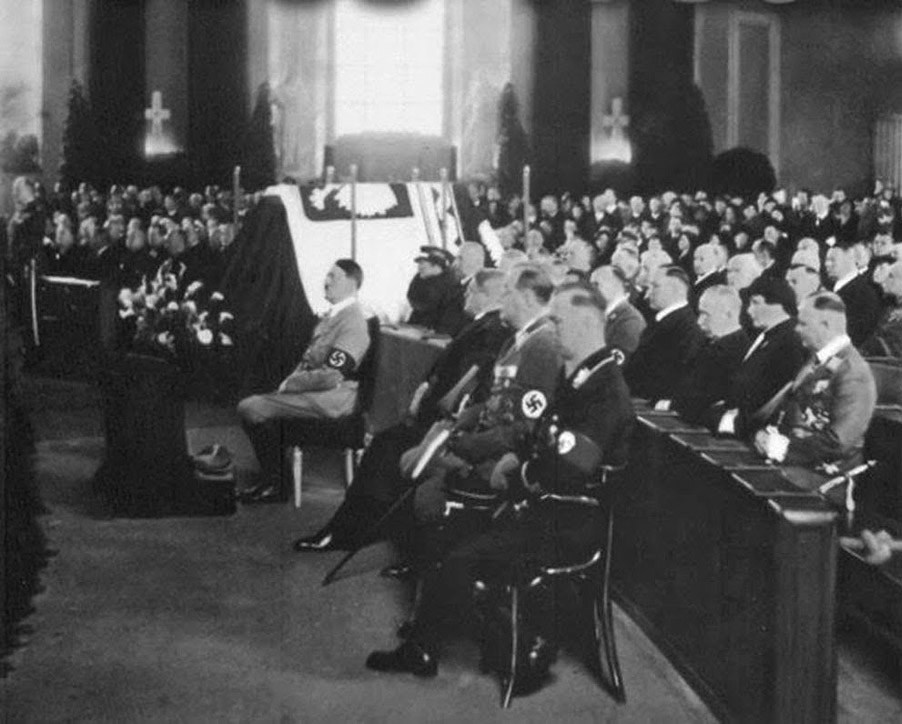
Did your former husband ever speak of the war, and what the Eastern Front was like?
Hanne: Yes of course he did. He was given leave a few times a year and we would write letters. He did not like speaking about the fighting, but I will tell you something. He was asked by a neighbor once if bad things were happening in the east regarding war crimes, he got this from leaflets the Allies dropped.
This bothered him deeply as he said there was nothing of the sort happening. There were many militias made up of civilians and at times they fought partisans in fierce battles. He would say for the most part the east was full of happy people who viewed our soldiers as liberators. You will not learn that today.
He had photos I remember that showed the civilians, always looking simple and poor, but happy. They would stay with them during the cold months and would help with food while in turn they cared for the soldiers. The partisans would attack these people to stop any friendship.
He told me of one village they stayed in which was later attacked by partisans and they killed most of the people as a warning. His comrades were all good men and I will never believe any of the stories the Russians tell.
I remember him telling me that during the retreats they did have to be hard, and burned down villages to deny the Russians shelter, as the Russians did in 1941. This they did not like to do, but it was ordered and they had to obey. They tore up roads and tracks, and had the civilians retreat with them if they wanted to.
He showed me a couple of the photos he took of this, and it looked unpleasant. He would say war is war and it has always been this way. He would say the civilians had been through this in 1941 with the Soviets, and now with Germans, and they were not happy. Interpreters would tell them sacrifices had to be made to slow the Soviets so they could recreate lines of resistance for coming offensives.
Everyone knew by then it was futile, but they had to try anything they could to slow down the enemy. He said the Russians did the exact same to them in 1941, so there should not be any difference but the civilians only saw it as destroying their homes needlessly.
How did the war end for you? Did you see any mistreatment of Germans after the war?
Hanne: I will tell you, I left Breslau right before a siege began. The Russians were close by us in January of 1945. I left with thousands of others in the bitter cold. The military wanted the civilians out of a war zone, but the problem was the weather was horribly cold. Our leader was appalled at sending people out and protested.
Many ended up dying; these were people from all over the east, but mostly Germans. I saw mothers pushing babies in prams that were meant for the smooth streets. I saw a family killed by a wood-burning car [wood-burning cars were one way Germany dealt with their lack of oil], it was said fumes leaked out. It was something you don’t wish to remember.
There was nothing that could be done, people were warning of what the Russians were doing, which added to the desperation to get away. I saw my first Russian plane as well; they started shooting at people on the road ahead of me. The temperature was minus 5 degrees so if you were old or weak you had problems.
I was thankful for my time in the BDM, as fitness was taught to be a way of life. Running, stretching, meditation, and healthy eating made me have the strength and endurance to even help an older woman trek for many miles to safety.
Along the way to the west, which took me several days, I would hear the stories that people wanted to make known of war crimes and mistreatment they saw. One that stands out was a woman who came from a German area of Russia and spoke of the partisans attacking the refugees. They robbed people like common thieves and shot anyone who resisted them.
It saddens me that the countless victims that died that winter never had their stories told about what happened. Today they are long forgotten and people are taught to just believe they deserved it for making Hitler their leader. The movies here always show the Germans as the guilty ones. I never saw any German, soldier or civilian mistreat anyone.
I will tell you also that I saw the best in people and acts of self-sacrifice. The weak and fragile were cared for as best could be done. There was no military anywhere on the roads that I saw, so it was civilians helping each other. The residents of the towns we came to would mostly welcome us offering what little they had.
There was not much food, and if we were lucky a farmer would offer milk or an egg, but that was rare as they were already picked dry. I had to sleep in many barns with no heat; we just huddled together for warmth. Each new day brought another death that I would see, all along the road they lay.
We went from farm to farm, and our group became smaller and smaller. My goal was to make it to Dresden as I had an address of a work friend. When we were close to the city we were told by police we could not enter, it had been bombed and they were cleaning up the dead. I was too numb to even understand it all.
I settled on Freiberg and was given aid by the still functioning aid units. They put me up in a hotel and had a doctor come to check me out. I had frostbite on my toes which he treated. I stayed there for a time until people said the Russians were close by and they heard reports of rapes.
I went on another trek but this time the weather was not as bad. I was lucky to have come across a military car where the soldiers offered me a ride. These men were helping move art away from the enemy. They told me they had overseen moving artwork out of buildings and museums so they would not be looted.
They took me to Bayreuth, where we parted ways. I was taken in at the local party office and given food and a place to stay. Would you believe they also put me to work after all this, saying they were short staffed? I agreed and went to work on really pointless tasks at this point.
I remember the Americans came into town and started rounding anyone up who was military, police or party affiliated. Someone in the town told on me, that I was working in the party office. I was arrested and sent to a camp for interrogation. I can tell you this was not pleasant and I did see mistreatment of men and women.
The guards here were not soldiers, but people who only wore a uniform to get revenge, they had Czechs and Poles and they were equally bad or at best uncaring. Everyone was scared and complaining that they had no reason to hold us, we did nothing wrong. This was where I heard about the camps for the first time.
These men really hated us as they thought we did these things, they called us bad names and murderers. When it was my turn to go to the court I told them I was merely a secretary filing papers, and nothing more. The men I had to present to had cold eyes, smoking cigars, and just laughed at me saying we all say the same thing.
I told them it is true, I was an office worker who had nothing to do with the war, only party matters like getting money to the wives of fallen party men, or helping someone get a new place to stay because of bombings. I learned you needed to be very polite, and accepting of what they said or they made life very bad.
I saw a guard beat a prisoner who refused to watch a propaganda film showing atrocities. I just went along with everything so I could be released to try to find any family. I was held until September 1945, it might not seem like a lot, but I was a civilian and a woman. I saw them bring in thousands of people during mass arrests.
However as quickly as it started, it was over. By that fall the attitudes of the Americans had changed. They saw the Russians as the bad guys and started to warm to us. They started providing much better food, and they were allowing people to travel to their homes.
I was given papers to allow me to return home. Sadly this never happened, I ran into an old face from home. She told me all was gone, seized by the partisans who were forcing all Germans out. She said if I tried to go back they may do things to me. She said she had no idea what happened to my parents, rumor was they were taken away by Polish partisans.
I ran into another young woman who was in the same boat, husband killed and so were her parents. So we joined together to survive and found work to begin saving for our next phase in life. It was then that I decided to come to America, as many were leaving Europe due to the victory of communism and fear of another war.
So here I am now in Ohio and have had a good life here, I am very happy to be given a chance and to start a family. Be glad for what you have and never be ungrateful or spiteful. Life is not meant to be lived angrily.

[Above: Here is an example of a Volkswagon wood-burning car.]
What do you think of all the stories now being told about the Third Reich and the German military being complicit in crimes unequaled in history?
Hanne: I can only give you my opinion based on what I saw or experienced. People here believe what they want to believe and they only know what they have been taught. They have no need to question anything because they trust the people who gave them the information.
You must understand people can be made to believe lies if they are told by the right person, in the right way. It is all about trust and how they make a person feel. With that I will say I saw nothing in Germany that would cause me to believe these stories that are told today.
Yes Jews were put into camps, but it was because many were seen as harmful to the war effort. I did not make the rules, and we should not be punished because of what our government did. Here the Japanese and Germans were put into camps but no one bats an eye.
Things may have been done on the fronts that were bad, but every army does bad things, war brings out the worst in man. Based on what my first man told me I would say the stories told about the SS and the east front are likewise not true.